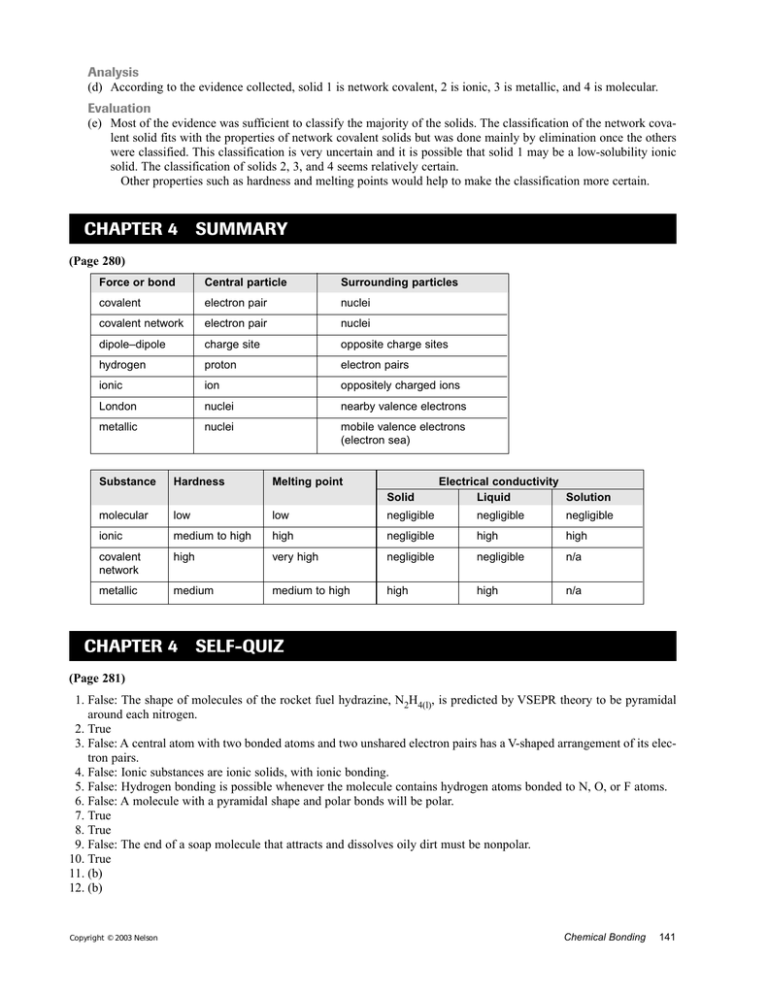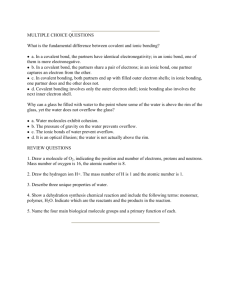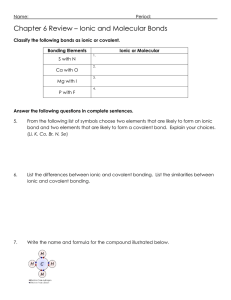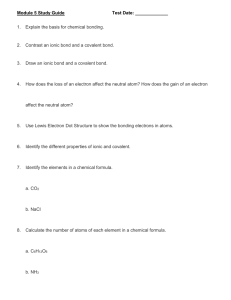Analysis
advertisement

Analysis (d) According to the evidence collected, solid 1 is network covalent, 2 is ionic, 3 is metallic, and 4 is molecular. Evaluation (e) Most of the evidence was sufficient to classify the majority of the solids. The classification of the network covalent solid fits with the properties of network covalent solids but was done mainly by elimination once the others were classified. This classification is very uncertain and it is possible that solid 1 may be a low-solubility ionic solid. The classification of solids 2, 3, and 4 seems relatively certain. Other properties such as hardness and melting points would help to make the classification more certain. CHAPTER 4 SUMMARY (Page 280) Force or bond Central particle Surrounding particles covalent electron pair nuclei covalent network electron pair nuclei dipole–dipole charge site opposite charge sites hydrogen proton electron pairs ionic ion oppositely charged ions London nuclei nearby valence electrons metallic nuclei mobile valence electrons (electron sea) Substance Hardness Melting point Solid Electrical conductivity Liquid Solution molecular low low negligible negligible negligible ionic medium to high high negligible high high covalent network high very high negligible negligible n/a metallic medium medium to high high high n/a CHAPTER 4 SELF-QUIZ (Page 281) 1. False: The shape of molecules of the rocket fuel hydrazine, N2H4(l), is predicted by VSEPR theory to be pyramidal around each nitrogen. 2. True 3. False: A central atom with two bonded atoms and two unshared electron pairs has a V-shaped arrangement of its electron pairs. 4. False: Ionic substances are ionic solids, with ionic bonding. 5. False: Hydrogen bonding is possible whenever the molecule contains hydrogen atoms bonded to N, O, or F atoms. 6. False: A molecule with a pyramidal shape and polar bonds will be polar. 7. True 8. True 9. False: The end of a soap molecule that attracts and dissolves oily dirt must be nonpolar. 10. True 11. (b) 12. (b) Copyright © 2003 Nelson Chemical Bonding 141


